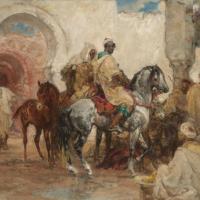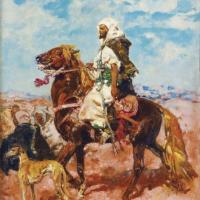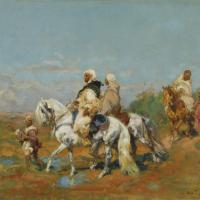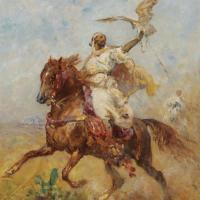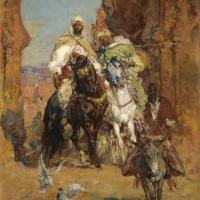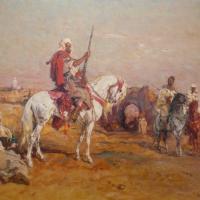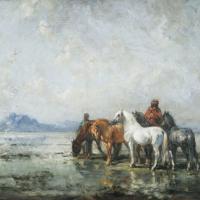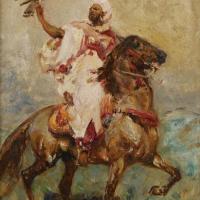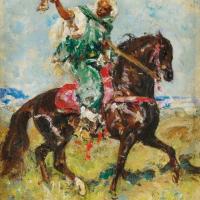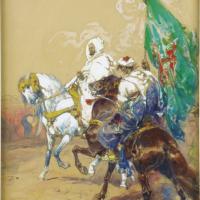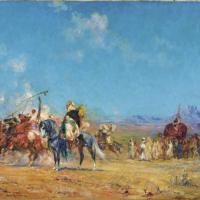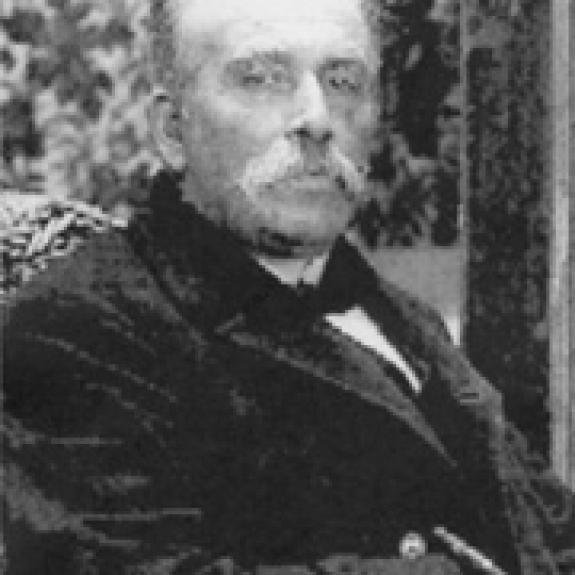Henri-emilien Rousseau
Entree Au Village
$480.00
Horseman With A Sloughi
$480.00
Le Fauconier
$480.00
Le Retour Des Guerriers
$480.00
Le Soir Aux Portes De Meknes
$480.00
Morning By A Lake
$480.00
North Africans On Horseback
$480.00
The Falcon Hunt
$480.00
Wedding Fantasia
$480.00
Henri-emilien Rousseau
Henri-Emilien Rousseau (1875-1933)
Henri Rousseau says Henry Emilien Rousseau ( Cairo 1875 - Aix-en-Provence 1933 ) is an orientalist painter , Provençal and Camarguais (whose works are signed Henri Rousseau as his namesake - the other naive painter - said "the customs officer Rousseau " ).
A student of Jean-Léon Gérôme at the Beaux-Arts in Paris, he won the second Grand Prix of Rome in 1900 and a travel grant at the Salon des Artistes Français. He travels through Belgium , Holland , North Africa , Spain and Italy where he admires the great masters ( Rubens , Rembrandt , Velasquez , Murillo , Titian , Raphael , etc.).
After this initiatory journey, he settled in Versailles and set up his studio at the Villa des Arts in Paris. In 1919 he moved to Aix en Provence with his large family (seven children). Knight of the Legion of Honor under the arts, he became a notable of the region. Painter traveler he devoted himself to Tunisia , Algeria and especially Morocco , Provence and Camargue remaining anchors. Its success with a wealthy and wealthy clientele is punctuated by numerous exhibitions in Paris, Brussels , Stockholm and Marseille.
His favorite themes are mainly Orientalist with his riders (he was a horse enthusiast), his falconers , fantasias , fortified city gates, and portraits of "caïds" as well as other more Western themes such as landscapes of Brittany , Île-de-France , manads of Camargue(12% of its important production) and Provençal landscapes . In addition to his paintings, he also executed about twenty wall decorations of mansions, 250 illustrations for publishing and many portraits ( Lyautey , the Sultan of Morocco ...).
Classical of training, it is a painter who will be rather indifferent to the schools in "ism" of his time, being wary of the picturesque and the imaginary, as much as of the exotic oriental fantasy which was then very fashionable.


